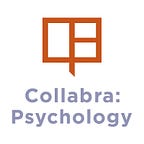Collabra: Psychology Senior Editor Spotlight: Rolf Zwaan
Collabra: Psychology is fortunate to have an impressive roster of editors. In this ongoing series highlighting our editors, we give you an idea of their work and research, as well as what inspired them to be part of Collabra: Psychology. Next up: Rolf Zwaan, Erasmus University Rotterdam, and Senior Editor, Cognitive Psychology.
Like M.C. Escher, that maker of mind-bending graphic art, Rolf Zwaan is Dutch. Such is the happenstance that brought Zwaan, then an undergraduate student interested in artificial intelligence, to read Douglas Hofstadter’s Pulitzer Prize-winning Gödel, Escher, Bach: An Eternal Golden Braid, thereby inspiring the young student to pursue a career in cognitive science. “I was interested in language and cognition, but I didn’t know I was until I read that book,” notes Zwaan. “And then I thought, ‘Ah, that’s how you can think about language comprehension as the manipulation of symbols in your head.’”
“We’re doing science to benefit society. We’re being funded by society. Yet publishers are putting up paywalls. This is a fundamental problem — science not being open
Since that time, Zwaan has been involved in a range of research activities, foremost among them, investigations on how we understand language, ranging from single words to literary stories, science texts, and movies. “When we understand language, we do more than manipulate abstract symbols, we engage action, emotion. And essential to cognition is abstraction. A crucial question then is, when do we use abstraction, and when don’t we? … The interaction between the abstract and the concrete representations we use to comprehend the stories we experience every day — anecdotes from friends, TV — this is the interesting point at which the field has arrived.” The basic idea driving this research for the past decades is that we build mental models of the events and situations that a speaker or writer is trying to convey. This makes language comprehension a special form of understanding events.
In 2012, Zwaan chaired a scientific integrity committee investigating a case of potential fraud, an experience which made him acutely aware of the need for open science: the practice of making not just the end products of research open and accessible, but also the processes leading up to that end result, including data sets, lab notes, and the feedback communicated through peer review. And through this desire to see more openness in science, Zwaan came to find Collabra: Psychology.
“We’re doing science to benefit society. We’re being funded by society. Yet publishers are putting up paywalls. This is a fundamental problem — science not being open — and it holds for not just the research articles themselves, but also for the availability of data, the explicitness of the methodology, and the transparency of the review process. With Collabra: Psychology, we’re addressing all of these issues, by requiring the underlying data, reviewing for methodological credibility, and by offering optional open peer review (which most authors have so far chosen). With Collabra: Psychology we have a real opportunity to make a difference.”
Want to read more from Rolf Zwaan? Visit his blog Zeistgeist: Psychological Experimentation, Cognition, Language, and Academia.
Interested in publishing your research with Collabra: Psychology? See our call for papers in cognitive psychology.
— Jeff Hester
